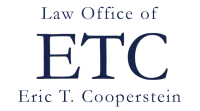 Maine has become the latest state to take sides in the grudge match over whether it is ethical for lawyers to search electronic documents for metadata hidden beneath the bytes. Â Maine says no, joining New York (both the state and county bars), Florida, Alabama, and Arizona. Â The ABA (Formal Op. 06-442), Maryland, Colorado, and D.C. place the heavier burden on the party creating or sending the electronic document and permit recipient lawyers to search at will. Pennsylvania sort of punted.
Maine has become the latest state to take sides in the grudge match over whether it is ethical for lawyers to search electronic documents for metadata hidden beneath the bytes. Â Maine says no, joining New York (both the state and county bars), Florida, Alabama, and Arizona. Â The ABA (Formal Op. 06-442), Maryland, Colorado, and D.C. place the heavier burden on the party creating or sending the electronic document and permit recipient lawyers to search at will. Pennsylvania sort of punted.
So the score, if you will, is now 6 to 4 against searching for hidden gems, unless one gives extra points to the ABA.
For the uninitiated, all this gnashing of teeth is over the risks of transmitting documents embedded with “metadata� – information that does not appear on the computer screen or on the printed copy of the document but nevertheless lurks somewhere in the electronic skeleton of a document, particularly word processing documents. Even fillable PDF documents may contain information that was entered into various fields and deleted later. Mostly it’s boring stuff: the author’s name, the date the document was created, the number of versions, etc.
But we all know that some people are pretty sloppy with their technology. The tech-saavy recipient could spend some time exploring the inner reaches of the document, uncovering comments and redlined changes, in the hopes of finding a higher settlement number, a juicy undisclosed fact, or a dreaded admission against interest. Or could she?
Most large law firms, and even solo or small law firms, address the problem with software that automatically scrubs the metadata from electronic documents before they are launched into cyberspace. There are even some free scrubbers out there, such as Doc Scrubber (which I have not tested).  That prevents being the leaker of confidential information and makes your malpractice carrier happier. But it doesn’t address what one is allowed to do upon receiving documents from opposing counsel and other parties that may contain metadata. Hence, all these ethics opinions.
The “don’t look� jurisdictions take the moral high ground, “do unto others . . .� and all that. Lawyers should not be in the business of intruding on the sanctity of someone else’s attorney-client relationship. Shame on us for even thinking about it.
The “caveat emptor� jurisdictions put the burden on the sender to protect his or her client’s information, except perhaps where it’s obvious on the face of the document that privileged information has been inadvertently disclosed. The ABA, having tried the moral high ground in 1974 on the issue of lawyers secretly tape recording conversations, only to reverse it self in 2001, declined to go that route again.
Stay tuned, this battle does not appear to be over yet. In the meantime, it is safe to say that lawyers have an obligation to protect their clients’ confidential information and prevent its disclosure. Lawyers who use the red-lining and commenting tools in their word processing documents as a means of communicating with clients are at greater risk for disclosing confidential information through metadata than lawyers who merely transmit final copies of documents to clients and other parties. No rule requires lawyers to use document scrubbing software, but lawyers likely have a responsibility to educate themselves about the types of metadata that may be retained in documents and learn how to remove the data or convert the document to a form that will not contain metadata.
New salvo in metadata battle is a post from the law firm marketing blog, Lawyerist.com
Related posts:
- Lawyers Want Online Document Sharing with Clients
- Sync Microsoft Office Docs with Google Cloud Connect

